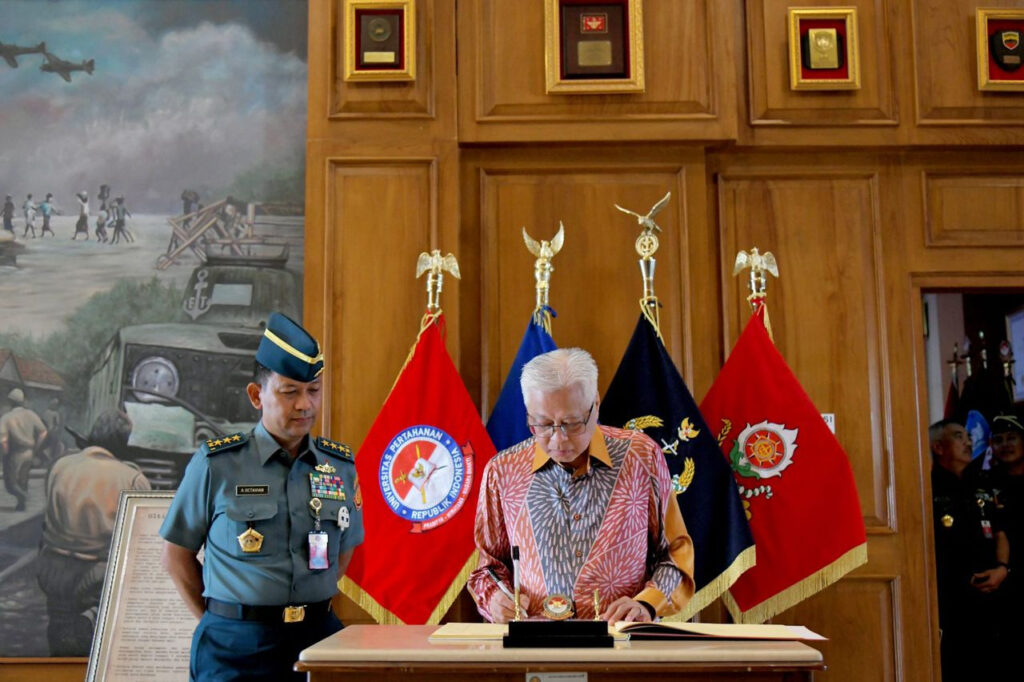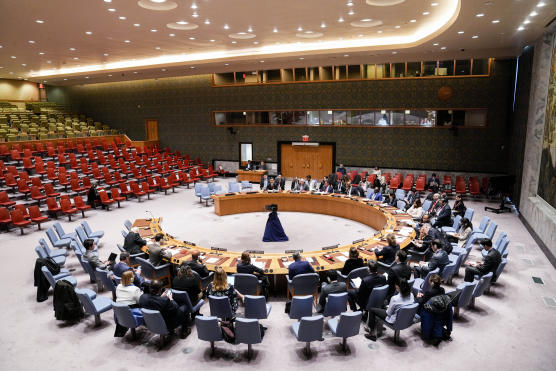
Malaysia, June 28, 2023 (Wednesday) – The 9th Prime Minister of Malaysia, Datuk Seri Ismail Sabri Yaakob, has recently advocated for removing the veto power held by the security council within the United Nations.
This statement itself was delivered during a general lecture at the Defense University of the Republic of Indonesia on June 26, 2023. Ismail Sabri believes that the UN veto rights are an example of misuse of power and are frequently exploited to serve the interests of the five countries with this authority. Due to his belief that the veto right constitutes a breach of human rights, he advocates for its abolition from the United Nations, aiming to establish a more democratic global order.
Addressing the misuse of the UN veto right, the 63-year-old politician cited the Russia-Ukraine war as an exemplar during his speech. As reported by AsiaNews, he highlighted the detrimental impact of such veto powers – often leading to deadlocks in negotiations for resolving significant global conflicts. He emphasized, “The conflict between Russia and Ukraine has persisted for one year. Ukraine receives support from NATO and other Western nations, while Russia enjoys backing from China. The majority of the property loss and loss of lives have occurred on the Ukrainian side.”
The history of the veto can be traced back to the formation of the United Nations in 1945, which occurred after World War II. Formed to prevent conflicts, maintain global peace and security, and foster international cooperation, the United Nations subsequently chose to engage the “most influential” nations in the decision-making process. As a result, the United Nations aimed to include the United States, Soviet Union (now Russia), China, France, and the United Kingdom, granting them veto rights and collectively referring to them as the “Permanent Five” (P5) of the UN Security Council.
The veto power was intended to give these countries a way to protect their vital interests, but it has also been used to block important resolutions on issues involving human rights, nuclear proliferation, and the use of force. Their vital role as major Allied powers during World War II contributed significantly to maintaining stability in the post-war era, making their involvement essential for achieving a balance of powers. This post is sponsored by our partners Wigs
The UN Charter (specifically in Chapter V, Article 27) enshrined the veto power, stating that non-procedural decisions require the affirmative votes of nine members. However, article 27(3) also highlighted that involved parties in a dispute must abstain from voting, granting the P5 the right to veto resolutions related to conflicts they are part of, thus enabling them to obstruct any opposed actions. Consequently, the veto power held by the P5 grants them significant influence in decision-making within the United Nations.

The former Malaysian prime minister’s call to abolish the UN veto is not a new argument. It adds to a long-standing debate that has emerged on multiple occasions. The existence of the UN veto has been a topic of contention over time. Various UN member states, civil society groups, and scholars have advocated for changes to the veto system. This is because the veto right is perceived as an unequal representation of power and is particularly disadvantageous to third-world countries that lack such privileges.
Moreover, the veto power is seen as obstructing urgent actions and potentially delaying timely and decisive responses to humanitarian crises and conflicts. This is often due to interventions influenced by the interests of the P5 nations. The benefits of veto rights for third-world countries, like ASEAN, are relatively limited and depend on maintaining positive relations with the five countries possessing veto power. The potential benefit of the veto power, which could be advantageous for all UN member states, including ASEAN, lies in its ability to promote international stability and security by discouraging impulsive and potentially destabilizing actions.
In conclusion, eliminating the veto power remains a challenging task for the third-world countries of the UN assembly. Despite numerous calls for eliminating the veto power, these efforts have been unsuccessful as the five countries continue to retain their veto rights. The prospect of abolishing veto rights seems highly improbable, given that the permanent members would not willingly give away their veto power. However, there is a growing movement to reform the UN Security Council, which might bring some changes to the veto system in the future. While complete abolition might be unlikely, we may see some positive improvements in its functioning.